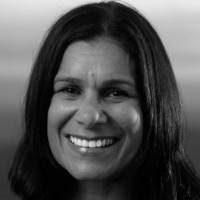When my Nana was just five years old, she was taken from her family as part of what is now known as the Stolen Generation — a tragic period in Australia’s history when many Indigenous children were forcibly removed from their families and communities in an attempt to assimilate them into white society. Nana was sent to a Methodist Mission on Croker Island, hundreds of kilometres from Jilkminggan, the place her ancestors had called home for generations. She never got the chance to return.
So, when the opportunity arose for me to lead a team of volunteers from the Origin Energy Foundation on a philanthropic trip to aid remote Aboriginal communities in the Northern Territory, I felt something shift inside me. Among the communities we’d visit was Jilkminggan, the very ground my Nana had longed to tread again. What started as a charitable program became a deeply personal path of connection — challenging, transformative, and unforgettable.
Hear from the schools, communities and volunteers about what the trip meant to them.
The program, called Illuminating Communities, would be delivered to these remote communities by the Origin Energy Foundation, in partnership with Australian charities SolarBuddy, Dymocks Children’s Charities and solar installer leadsun. We would bring STEM and literacy resources, educational support, and safe, reliable lighting to these Aboriginal communities facing energy insecurity, including Jilkminggan, Ngukurr and Wuyagiba.
Even though Origin Energy doesn't operate in these areas, the company and its Foundation are committed to initiatives like this as part of a broader mission to address energy inequality, foster long-term community connections, strengthen relationships with First Nations peoples, and empower future generations through education. This effort reflects a shared responsibility to contribute positively to all communities, regardless of geographic boundaries.
During the six-day trip across the Northern Territory, we would meet with locals and visit schools, teaching students about renewable energy and working with them to assemble solar-powered lights, which are then used locally, enhancing energy access and education.
We would also install solar-powered public lighting at the Wuyagiba Study Hub — a ‘bush university’ in Arnhem Land that blends Western and Indigenous curriculums for Aboriginal students. This initiative builds on a partnership the Origin Energy Foundation has had with Macquire University to support the study hub since it was established in 2018.
Due to Wuyagiba’s remote location, we extended the initiative to include installing additional public lighting in the community of Ngukurr and delivered the light-building education program to school students in Jilkminggan, Ngukurr, and Wuyagiba.
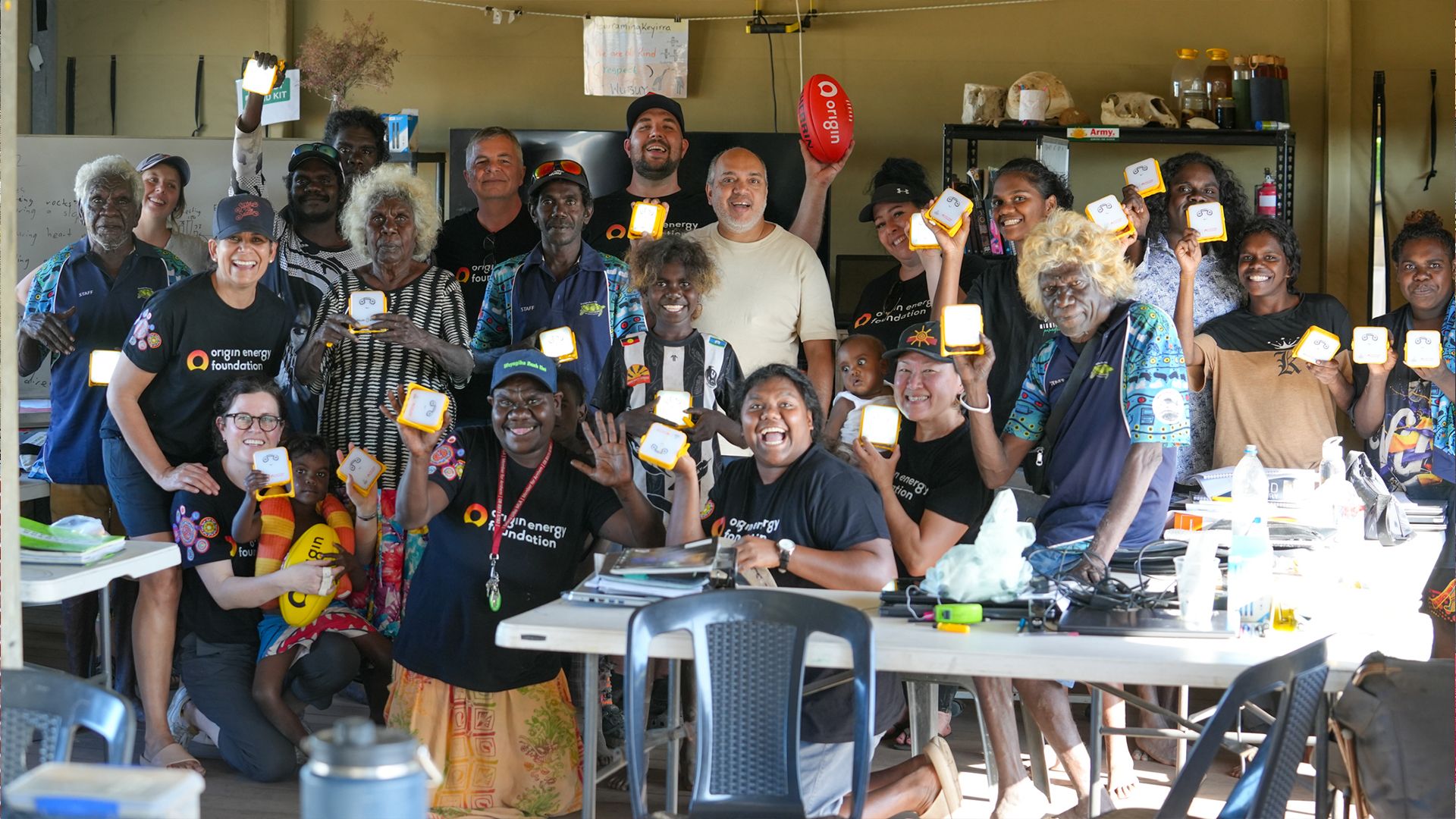
Origin Energy Foundation volunteers working alongside the Wuyagiba community to build SolarBuddy lights at the Wuyagiba Study Hub
Planning this trip was no small feat. Everything hinged on earning the trust and acceptance of each Aboriginal community to access their lands. From day one, we sought their input, corresponding with community leaders to ensure they had a voice in shaping our itinerary.
With the remoteness of these locations, safety was paramount — ensuring we had enough medical supplies, fuel, food and water. Coordinating travel was another hurdle, with Origin volunteers flying in from five different locations across the country. It was a massive team effort, that took about seven months to organise, but I’m so proud to say we pulled it together.
Having spent much of my life in remote communities—growing up in the Northern Territory, working in Indigenous affairs, and also serving as a Director of Red Dust Role Models — I had a good idea of what to expect in this trip. But the warmth and openness of the welcome we received in each community still took me by surprise.
From the moment we arrived, we were greeted with genuine hospitality that made us feel instantly part of the community. Visitors are not common in some of these areas, and it was clear the locals were proud to share their culture with us. Connecting felt effortless—it was mutual, they were just as curious about us as we were about them. Spending time with them, learning about their deep connection to the land and their daily challenges, was humbling and eye-opening. It reinforced how vital it is to build relationships rooted in respect and understanding.
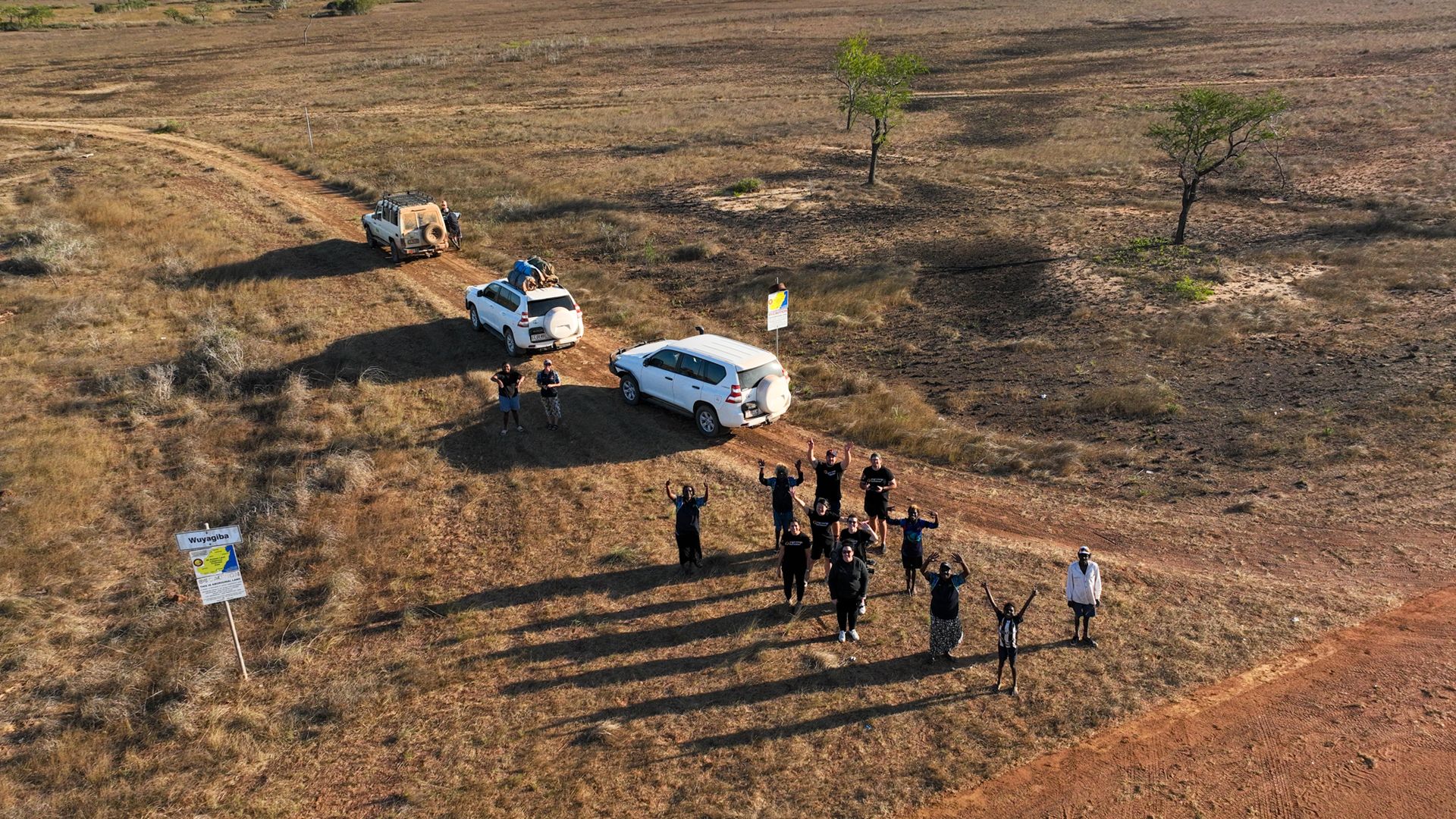
Origin Energy Foundation volunteers, Wuyagiba staff and community members at the Wuyagiba turnoff
The students we met in each community were eager to engage with us, always diving into each solar light-building activity with enthusiasm. We had the privilege of contributing to the refresh of the schools’ libraries by delivering hundreds of new books, generously donated in collaboration with Dymocks Children’s Charities. Additionally, Andrew Edwards, from our Origin IT team, played a key role in facilitating the donation of 60 refurbished laptops, helping to enhance students' learning by providing greater access to technology. This contribution was met with great excitement from the students.
While I was aware that educational inequities exist in Australia, this experience really underscored the deep disparities remote Aboriginal communities face. Seeing firsthand how geographical isolation limits students’ access to learning was eye-opening. Their joy at receiving something as simple as library books and taking part in new STEM learning opportunities reminded me just how important it is to bridge this gap — so that every child, no matter where they live, has the same chance to thrive.
One standout moment was working with the little ones at Ngukurr School. We built the solar lights in small groups, and seeing the pride on their faces, especially the younger kids, was heartwarming. It made me proud of them and everything they’d accomplished. Each child was an absolute delight.
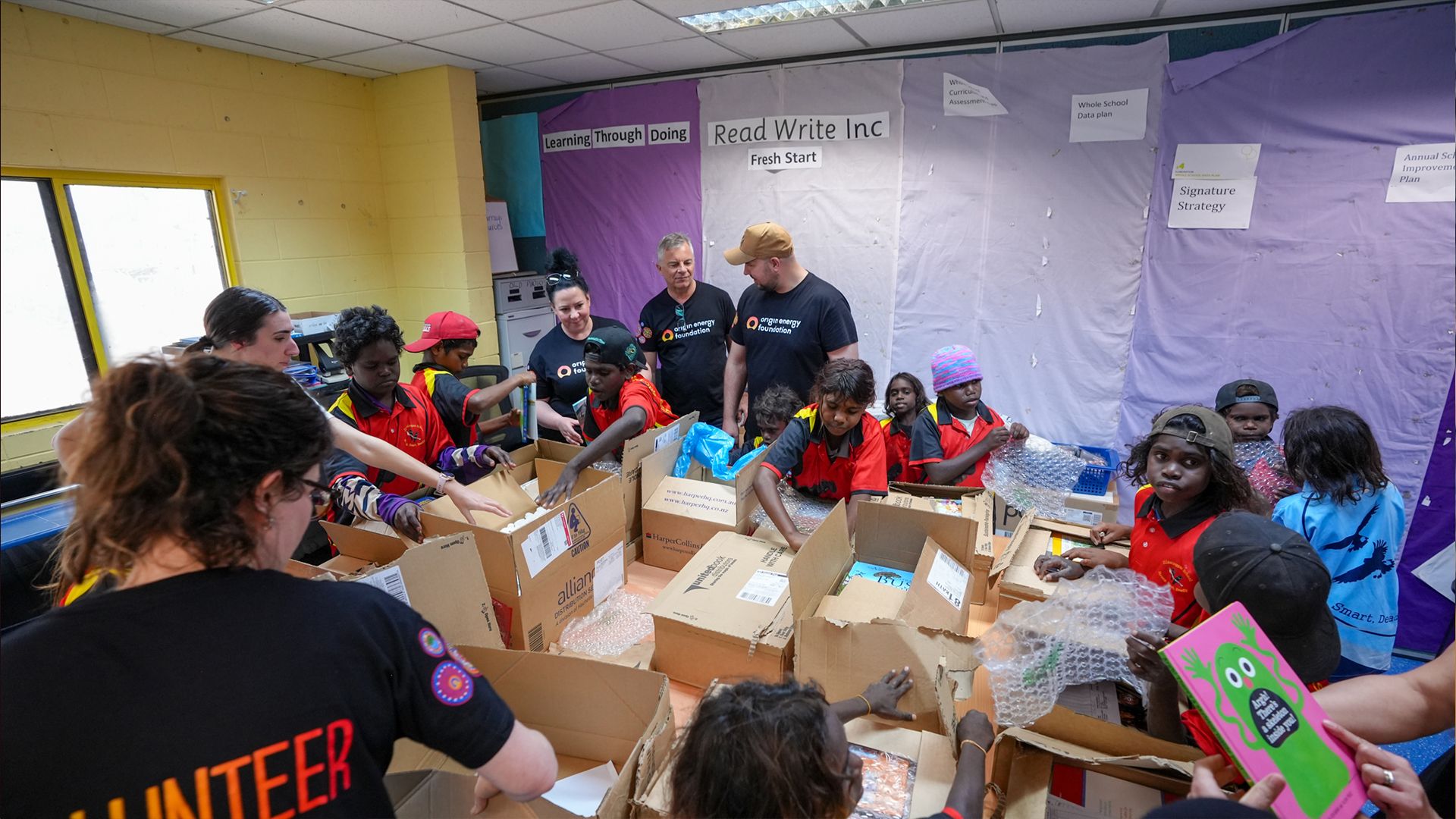
During visits to Jilkminggan, Ngukurr we had the privilege of delivering hundreds of new books to bolster the schools’ libraries, generously donated in collaboration with Dymocks Children’s Charities
Another extraordinary moment — in a trip filled with unforgettable experiences — was visiting the Wuyagiba homelands. I had already formed a strong connection with the community through earlier correspondence via email and video conferencing but being there in person elevated it to a whole new level. From the moment we stepped out of our vehicles, we were welcomed like family.
The Traditional Owners, teachers, students and other community members generously shared their sacred stories and language, even dancing with us to help us understand their kinship lines. A highlight was joining them for a day of hunting and gathering, where they taught us their traditional ways of living off the land—a humbling and eye-opening experience.
One of the most significant moments was when they gave us skin and bush names. It’s hard to express, but receiving those names was a profound gesture of respect and connection. I now feel a deep bond with the land and its people that transcends mere visitation; it’s a connection that will stay with me for a long time.
It was deeply satisfying to be able to return the local’s warm hospitality by installing solar-powered public lighting in their communities —something locals expressed would greatly benefit them. I learned that nights in these remote areas can be incredibly dark, raising safety concerns. We installed several lights, each illuminating a 20-feet radius, enabling residents to navigate their surroundings more confidently and helping foster social interactions after dark.
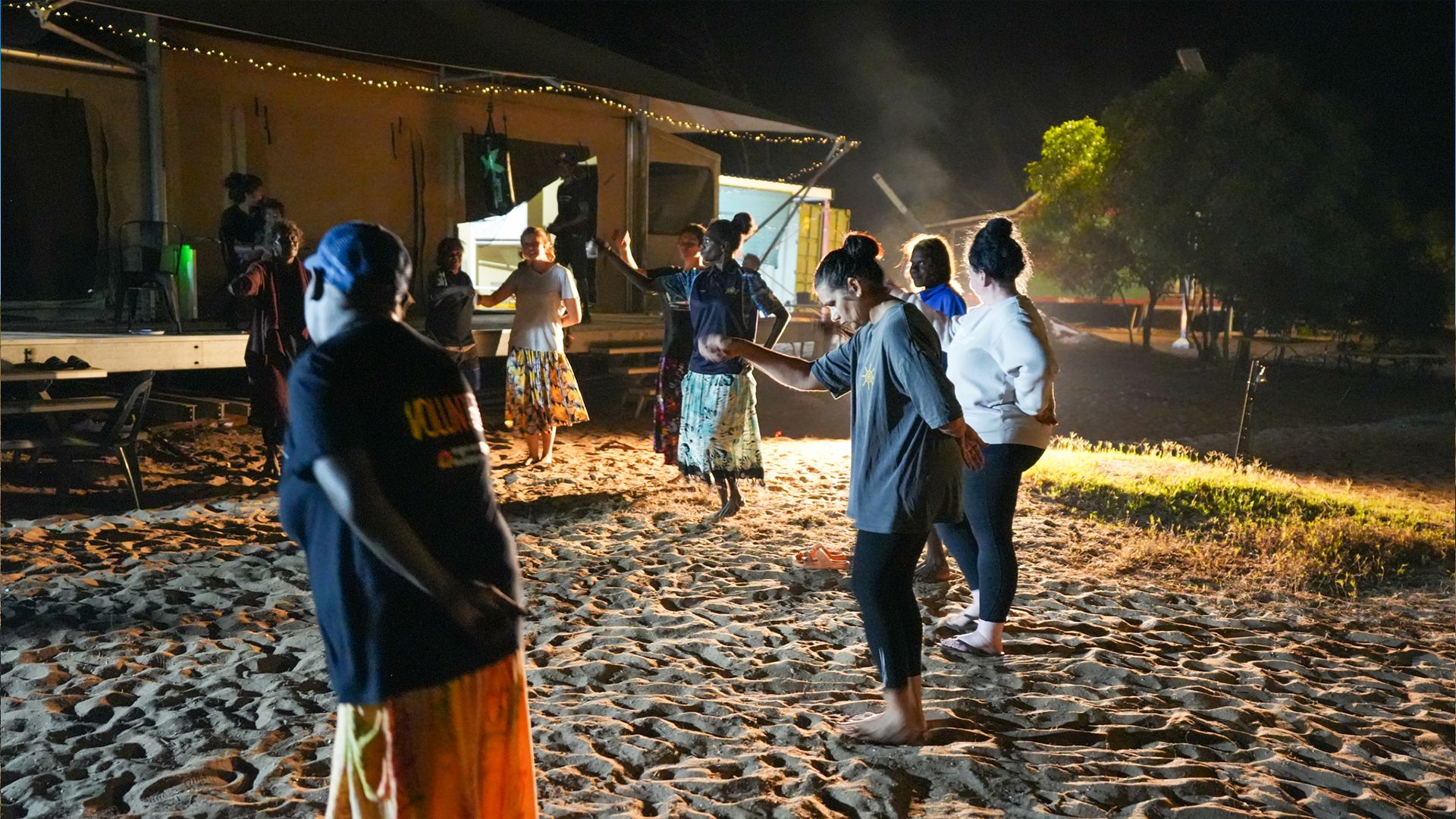
Dancing in the bungul at the Wuyagiba Study Hub
Our visit to Jilkminggan, just a one-and-a-half-hour drive from Katherine, was deeply emotional for me. I connected with family I had never met before, embraced like a long-lost relative, and introduced to those who shared my bloodline. For me, this philanthropic endeavour had evolved into more than just a visit; it had become a chance to reclaim a lost piece of my family’s history. Walking on the land where my Nana was born deepened my understanding of who I am and strengthened my bond with my heritage.
Meeting family members for the first time reinforced the importance of staying connected to my roots and using my opportunities to uplift others. Professionally, the trip underscored the value of authentic community engagement. The warmth of the community and our shared cultural experiences highlighted how critical it is to collaborate directly with the people we aim to support. It’s not just about providing resources; it’s about building meaningful relationships that drive lasting change.
I know my Nana would have been proud of our efforts to connect with and support the Jilkminggan community and other remote Aboriginal communities. I’ve made it a priority to give back, keeping her legacy alive by remaining true to myself and connected to my origins. I know my Nana would be proud that I’m focused on helping others, never losing sight of the journey that got me here.
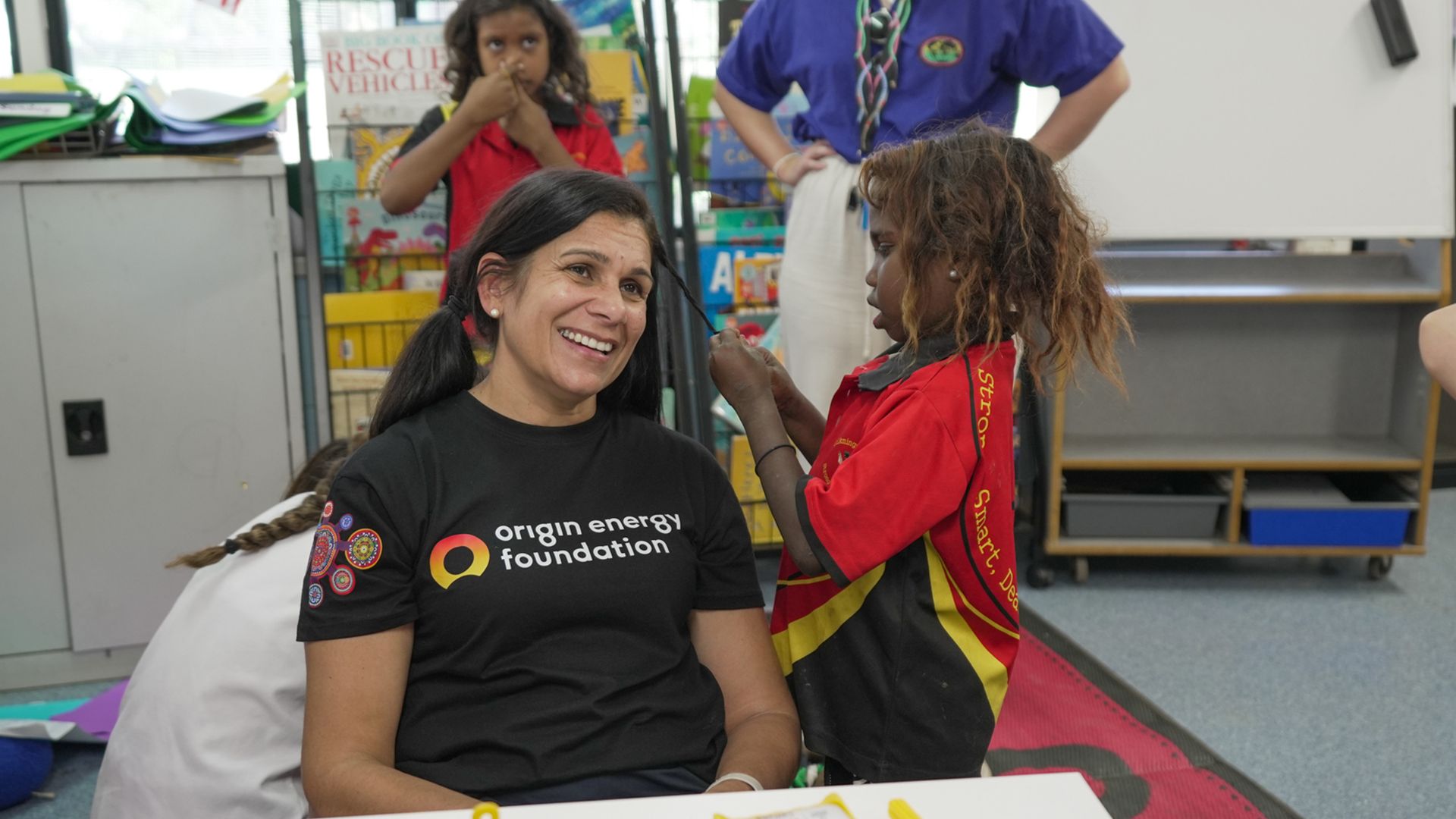
Getting my hair styled by a student at Jilkminggan School during our visit.
This engaged philanthropy approach strengthens the connection between Origin Energy Foundation volunteers and the communities through hands-on interactions. Rather than simply providing financial support, we worked directly with the communities—installing lighting, donating books and laptops, building small solar lights, and assisting with education while experiencing their challenges firsthand. This collaboration created a shared purpose, allowing both sides to see immediate, tangible outcomes.
The impact was both practical and emotional. While we improved educational resources and lighting, contributing to long-term benefits, we also built trust and respect. Being on the ground and actively contributing to solutions was incredibly fulfilling and underscored the importance of sustained, meaningful engagement in philanthropy.
Witnessing the immediate difference we made was truly rewarding. Whether supporting educational initiatives, enhancing safety, or fostering community cohesion with public lighting, each effort was a humbling reminder of how vital our work is in helping increase access to education to all Australians – especially those facing disadvantage – and the significant benefits these communities gain from ongoing support.
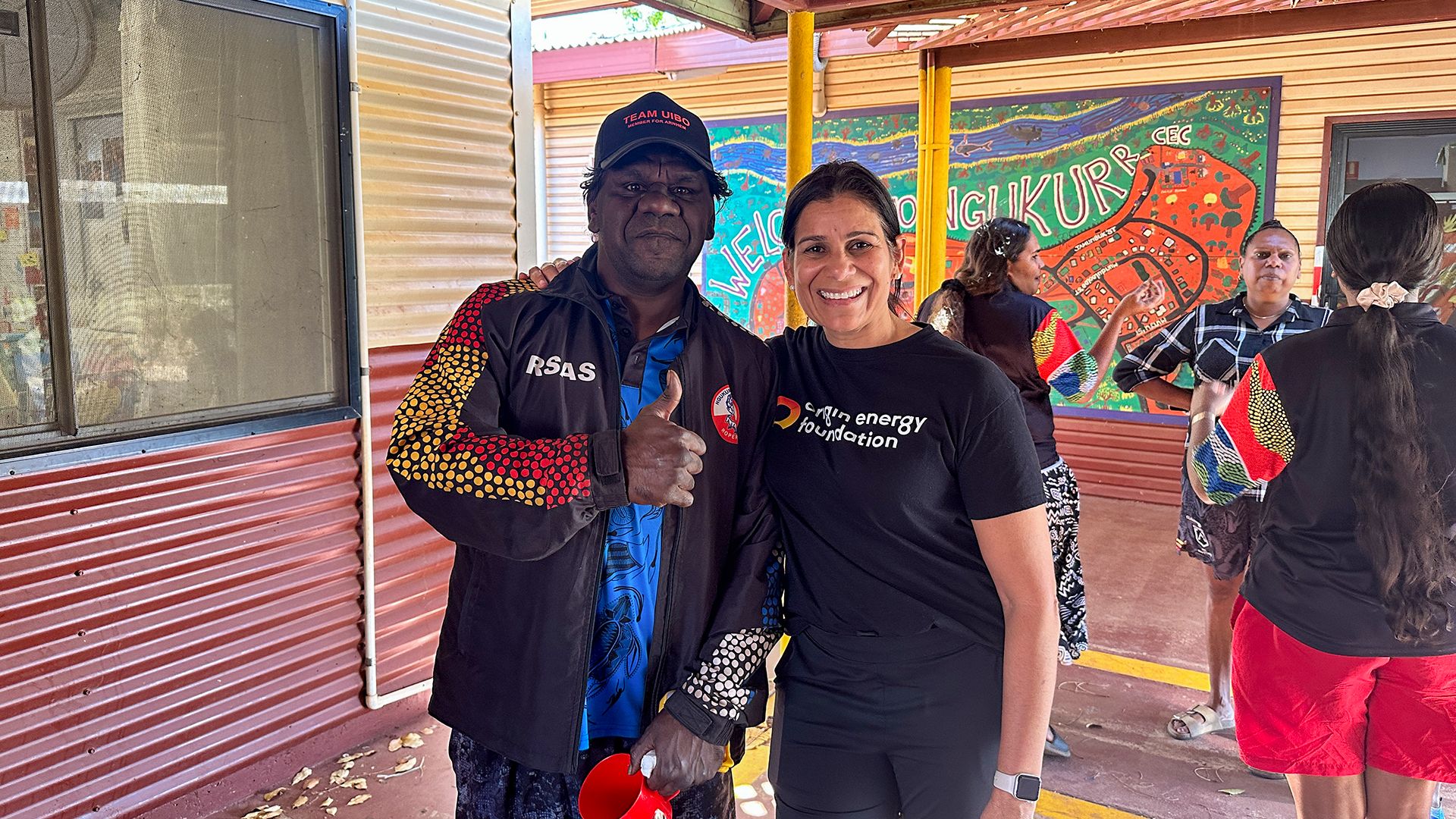
A photo of me and Howard from Ngukurr School during our visit
Tania Carlos is a community relations specialist with over 20 years of experience in government, Indigenous relations, and the oil and gas and energy sectors. She excels in stakeholder management, social impact, strategy development, and community investment. Currently, Tania serves as Senior Manager of Foundation Specialist Programs and Volunteering at the Origin Energy Foundation, where she leads initiatives aimed at using education to break the cycle of disadvantage for young Australians. Additionally, she is a Director on the Board of Red Dust, advocating for improved Indigenous community health and meaningful causes.


